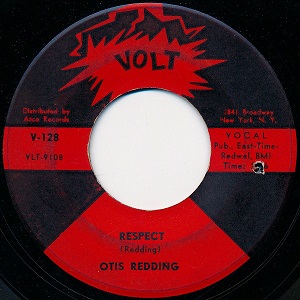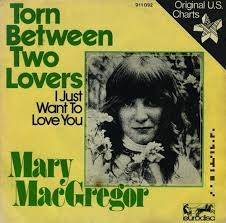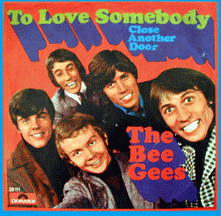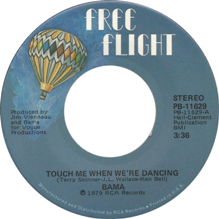
Arthur Alexander was an American country-soul songwriter and singer. Jason Ankeny, music critic for AllMusic, said Alexander was a "country-soul pioneer" and that, though largely unknown, "his music is the stuff of genius, a poignant and deeply intimate body of work on par with the best of his contemporaries." Alexander's songs were covered by such stars as the Beatles, the Rolling Stones, Bob Dylan, Gerry and the Pacemakers, Otis Redding, Tina Turner, Pearl Jam, and Jerry Lee Lewis.

"Whole Lotta Love" is a song by the English rock band Led Zeppelin. It is the opening track on the band's second album, Led Zeppelin II, and was released as a single in 1969 in several countries; as with other Led Zeppelin songs, no single was released in the United Kingdom. In the United States, it became their first hit and was certified gold. Parts of the song's lyrics were adapted from Willie Dixon's "You Need Love", recorded by Muddy Waters in 1962; originally uncredited to Dixon, a lawsuit in 1985 was settled with a payment to Dixon and credit on subsequent releases.

"I Will Survive" is a song recorded by American singer Gloria Gaynor, released in October 1978 by Polydor Records as the second single from her sixth album, Love Tracks (1978). It was written by Freddie Perren and Dino Fekaris. The song's lyrics describe the narrator's discovery of personal strength following an initially devastating breakup. The song is frequently regarded as an anthem of female empowerment, as well as a disco staple.

"The Devil Went Down to Georgia" is a song written and recorded by American music group Charlie Daniels Band and released on their 1979 album Million Mile Reflections.

"Rock with You" is a song by American singer Michael Jackson, written by Rod Temperton and produced by Quincy Jones. It was first offered to Karen Carpenter, while she was working on her first solo album, but she turned it down. It was released in October 1979, by Epic Records as the second single from Jackson's fifth solo studio album Off the Wall (1979). It was also the third number-one hit of the 1980s, a decade in which the pop singles chart would quickly be dominated by Jackson.

"Respect" is a song written and originally recorded by American soul singer Otis Redding. It was released in 1965 as a single from his third album Otis Blue/Otis Redding Sings Soul and became a crossover hit for Redding.

"Proud Mary" is a song by American rock band Creedence Clearwater Revival, written by vocalist and lead guitarist John Fogerty. It was released as a single in January 1969 by Fantasy Records and on the band's second studio album, Bayou Country. The song became a major hit in the United States, peaking at No. 2 on the Billboard Hot 100 in March 1969, the first of five singles to peak at No. 2 for the group.

"Take a Chance on Me" is a song by Swedish pop group ABBA, released in January 1978 as the second single from their fifth studio album, ABBA: The Album (1977). Agnetha Fältskog and Anni-Frid Lyngstad share the lead vocals on the verses and choruses, with Fältskog singing two bridge sections solo. The song reached the top ten in both the UK and US, and was notably covered by the British band Erasure in 1992.

"When a Man Loves a Woman" is a song written by Calvin Lewis and Andrew Wright and first recorded by Percy Sledge in 1966 at Norala Sound Studio in Sheffield, Alabama. It made number one on both the Billboard Hot 100 and R&B singles charts. Country singer John Wesley Ryles had a minor hit with his version of the song in 1976. Singer and actress Bette Midler recorded the song and had a Top 40 hit with her version in 1980. In 1991, Michael Bolton recorded the song and his version peaked at number one on both the Billboard Hot 100 chart and the Billboard Adult Contemporary Singles chart.
"Dream Lover" is a song written by American musician Bobby Darin. Darin recorded his composition on March 5, 1959 and released it as a single the following month. It was produced by Ahmet Ertegun and Jerry Wexler and engineered by Tom Dowd.

"Hot Stuff" is a song by Pete Bellotte, Harold Faltermeyer, and Keith Forsey released as the lead single by American singer Donna Summer on her seventh studio album Bad Girls, produced by English producer Pete Bellotte and Italian producer Giorgio Moroder in 1979 through Casablanca Records. Up to that point, Summer had mainly been associated with disco songs but this song also showed a significant rock direction, including a guitar solo by ex-Doobie Brother and Steely Dan guitarist Jeff "Skunk" Baxter. It is the second of four songs by Summer to reach number one on the Billboard Hot 100.

"Philadelphia Freedom" is a song by English musician Elton John and songwriter Bernie Taupin. It was released as a single on 28 February 1975, credited to the Elton John Band. The song was the fourth of John's six number-one singles in the US during the early and mid-1970s, which saw his recordings dominating the charts. In Canada it was his eighth single to hit the top of the RPM national singles chart.

"We've Got Tonite" is a song written by American rock musician Bob Seger, from his album Stranger in Town (1978). The single record charted twice for Seger, and was developed from a prior song that he had written. Further versions charted in 1983 for Kenny Rogers as a duet with Sheena Easton, and again in 2002 for Ronan Keating.

"Torn Between Two Lovers" is a song written by Peter Yarrow and Phillip Jarrell that speaks about a love triangle, and laments that "loving both of you is breaking all the rules". Mary MacGregor recorded it at Muscle Shoals Sound Studio in 1976 and it became the title track of her first album.

"I'll Take You There" is a song written by Al Bell, and originally performed by soul/gospel family band the Staple Singers. The Staple Singers version, produced by Bell, was released on Stax Records in February 1972, and spent a total of 15 weeks on the charts and reached #1 on the Billboard Hot 100. By December 1972, it had sold 2 million units and is ranked as the 19th biggest American hit of 1972. It remains one of the best-selling gospel songs of all time.
"I Don't Want to Talk About It" is a song written by American guitarist Danny Whitten. It was first recorded by American rock band Crazy Horse and issued as the final track on side one of their 1971 eponymous album. It was Whitten's signature tune, but gained more fame via its numerous cover versions, especially that by Rod Stewart. Cash Box magazine has described it as "a magnificent ballad outing."

"Old Time Rock and Roll" is a song written by George Jackson and Thomas E. Jones III, with uncredited lyrics by Bob Seger. It was recorded by Seger for his tenth studio album Stranger in Town. It was also released as a single in 1979. It is a sentimentalized look back at the music of the original rock 'n' roll era and has often been referenced as Seger's favorite song. The song gained renewed popularity after being featured in the 1983 film Risky Business. It has since become a standard in popular music and was ranked number two on the Amusement & Music Operators Association's survey of the Top 40 Jukebox Singles of All Time in 1996. It was also listed as one of the Songs of the Century in 2001 and ranked No. 100 in the American Film Institute's 100 Years...100 Songs poll in 2004 of the top songs in American cinema.

"Under the Boardwalk" is a pop song written by Kenny Young and Arthur Resnick and recorded by the Drifters in 1964. It charted at number four on the Billboard Hot 100 chart on August 22, 1964. The song has since been covered by many other artists, with versions by Bette Midler, Sam & Dave, Tom Tom Club, The Rolling Stones, Billy Joe Royal, The Beach Boys, Bruce Willis, Bad Boys Blue, John Mellencamp and Lynn Anderson all charting in the United States or overseas. The song ranked number 487 on Rolling Stone's list of The 500 Greatest Songs of All Time in 2004 and number 489 in 2010.

"To Love Somebody" is a song written by Barry and Robin Gibb. Produced by Robert Stigwood, it was the second single released by the Bee Gees from their international debut album, Bee Gees 1st, in 1967. The single reached No. 17 in the United States and No. 41 in the United Kingdom. The song's B-side was "Close Another Door". The single was reissued in 1980 on RSO Records with "How Can You Mend a Broken Heart" as its flipside. The song ranked at number 94 on NME magazine's "100 Best Tracks of the Sixties". The entry was a minor hit in France but reached the top 10 in Canada.

"Touch Me When We're Dancing" is a song written by Terry Skinner, J. L. Wallace and Ken Bell. Skinner and Wallace headed the Muscle Shoals, Alabama session group Bama, who first recorded this song and released it as a single in 1979 reaching number 42 on the Billboard Easy Listening chart and number 86 on the Billboard Hot 100 chart. The song was later recorded by The Carpenters in 1981 for their Made in America album. In 1984, it was recorded by country music artists Mickey Gilley and Charly McClain for their 1984 duet album It Takes Believers and in 1986 by the country music group Alabama.

















